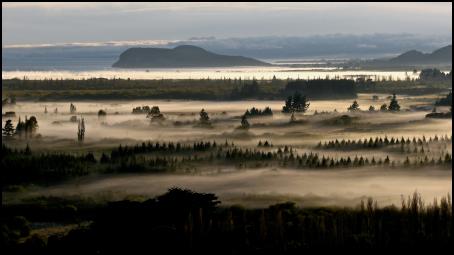Neikrie’s Notes: The Last Frontier

As the moon rose higher the inessential
houses began to melt away until gradually I became aware of
the old island here that flowered once for Dutch sailors’
eyes – a fresh, green beast of the new world. Its vanish
trees, the trees that had made way for Gatsby’s house, had
once pandered in whispers to the last and greatest of all
human dreams; for a transitory enchanted moment man must
have held his breath in the presence of this continent,
compelled into an aesthetic contemplation he neither
understood nor desired, face to face for the last time in
history with something commensurate to his capacity for
wonder.
- F. Scott Fitzgerald, The Great
Gatsby
Fitzgerald was wrong, wasn’t he? The last virgin landmass on earth wasn’t America, or Long Island. It was New Zealand, glimpsed through the inevitable haze and rainfall by the Polynesians between 1250-1300 CE. And once that rain or haze cleared, maybe then they could’ve achieved that sense of awe and humility, a capacity for wonder exceeding even that of the Dutch sailors. If Fitzgerald saw Long Island as ultimate product of natural force, divine power, and raw beauty, he needed to get out more.
Traveling around the North and South Islands, it’s hard to believe such a majestic place could go untouched for so long. But in some of my travels–repelling into the Waitomo Lost Caves, kayaking on the appropriately named Doubtful Sound¬–I almost dared to believe that I too was witnessing an untouched creation, one of the last vestiges of natural beauty.
Staring at fjords rising out of the water, it’s easy to forget that man-made pollution has destroyed the Ozone layer above your head, that the Moa are extinct, and that the lands are largely devoid of the forests that once covered them. It’s easy to forget that you haven’t discovered a forgotten land.
Somehow it all feels more palpable here. Because New Zealand remained isolated for so long, the effects of millions of years of evolution are all around you. There are the trees that have developed harsh, pointy leaves right up to eight-and-a-half feet (the average height of a Moa), at which point they promptly revert back to their normal, soft shape. There are the birds, historically bereft of predators, who walk up to you without a care in the world. We have destroyed the ecological balance in much of the world. But when you come to New Zealand, you almost believe it can still be saved.
I wanted to write a reflection of my three months in New Zealand, but I am paralyzed by an almost simultaneous dearth and deluge of comments. What more can you say about the scenery of New Zealand that the people of Middle Earth have not heard before? I have written about Kiwi political and social adaptability, about the New Zealand attitude toward American Exceptionalism, and about the overwhelming national pride for the All Blacks. But how can you describe the uniqueness of Kiwi culture to a group of people so isolated that their uniqueness is almost ubiquitous?
All I can say is, I hope you appreciate what a great country you’ve got here.
ENDS


 Dame Malvina Major Foundation: Kiwi Opera Star Emmanuel Fonoti-Fuimaono Joins The Royal Opera, London
Dame Malvina Major Foundation: Kiwi Opera Star Emmanuel Fonoti-Fuimaono Joins The Royal Opera, London Aotearoa Music Awards: 60 Years Of Tūī - Presenting The Finalists For The 2025 Aotearoa Music Awards
Aotearoa Music Awards: 60 Years Of Tūī - Presenting The Finalists For The 2025 Aotearoa Music Awards PATHA: Health Professional Bodies Oppose Restrictions On Puberty Blockers
PATHA: Health Professional Bodies Oppose Restrictions On Puberty Blockers Universities New Zealand - Te Pokai Tara: Young Mathematics Talent Bound For Cambridge With Sir Douglas Myers Scholarship
Universities New Zealand - Te Pokai Tara: Young Mathematics Talent Bound For Cambridge With Sir Douglas Myers Scholarship Yachting New Zealand: NZ Windfoil Star Starts New Olympic Campaign With Bronze At Princess Sofia
Yachting New Zealand: NZ Windfoil Star Starts New Olympic Campaign With Bronze At Princess Sofia E tū: Bupa Roster Changes Put Residents And Caregivers At Risk
E tū: Bupa Roster Changes Put Residents And Caregivers At Risk